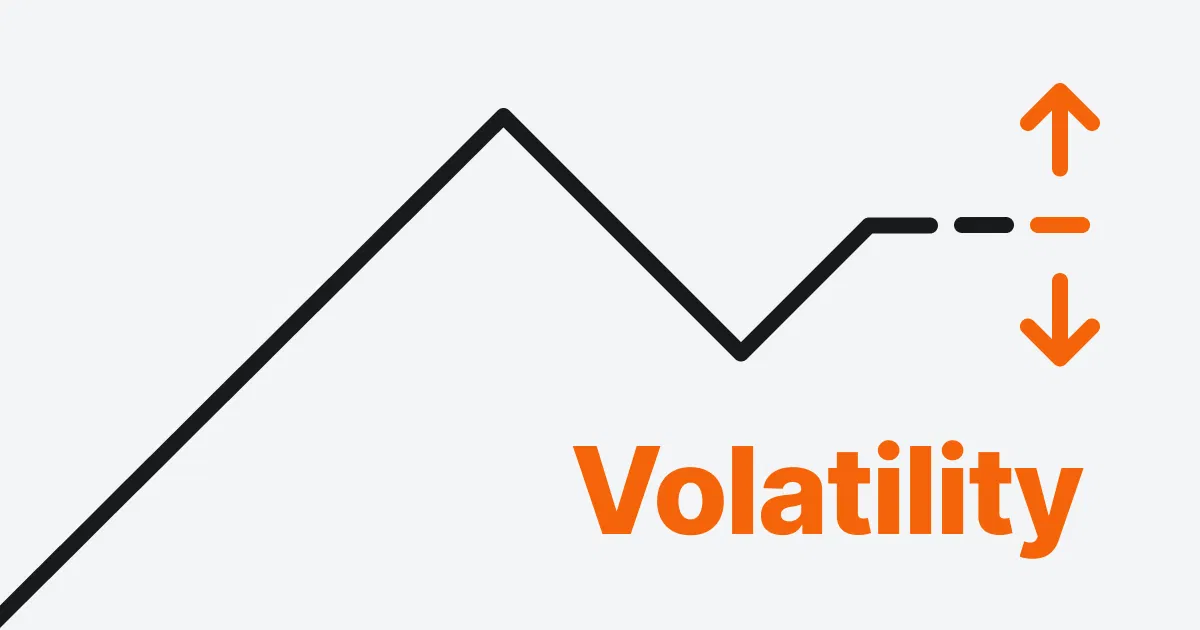
Author
Jonathan Hobbs, CFA
Date
25 Feb 2025
Category
Martket Insights
How Volatility Affects Options Premiums
Your capital is at risk if you invest. You could lose all your investment. Please see the full risk warning here.

Volatility is one of the biggest factors affecting options prices. When volatility is high, options premiums tend to rise (all else being equal). When volatility is low, options premiums tend to drop. That’s because options derive value from uncertainty.
The more a stock (or underlying asset) moves, the greater the chance an option will end up “in the money”. That can make calls and puts more expensive when volatility is high.
Implied volatility vs historical volatility
Traders look at implied volatility (IV) to gauge expected future stock price movement. IV is built into an option’s price and reflects what the market “thinks” might happen. Historical volatility, on the other hand, shows how much a stock has moved in the past.
If IV spikes, options typically become more expensive – even if the stock price stays the same. If IV drops, options tend to become cheaper, making them less attractive to option sellers.
Example: Nvidia Stock
Assume Nvidia (NVDA) stock is trading at $140. An investor wants to buy a one-month call option with a $150 strike price.
If the market expects low volatility, the premium might be $2 per contract.
If volatility surges – due to an upcoming earnings report or market uncertainty – the same option might cost $5 or more.
Even if the stock stays at $140, the call option’s price can rise or fall depending on IV.
Why it matters
Traders often use volatility to time their entries. Buying options when volatility is high can be risky because IV might drop, deflating the premium. On the other hand, selling options in high-volatility environments can be more profitable – because premiums are higher. But high-volatility can also come with more risk.
Key takeaways
Higher volatility tends to increase options premiums, making both calls and puts more expensive.
Implied volatility (IV) affects option prices, even if the stock doesn’t move.
Higher volatility can also bring more risk to options strategies.
Your capital is at risk if you invest. You could lose all your investment. Please see the full risk warning here.
Related Products:
Strategy
Cash-Secured Put + Equity
Distribution Yield
42.69%
Strategy
Cash-Secured Put + Equity
Distribution Yield
142.78%
Strategy
Cash-Secured Put + Equity
Distribution Yield
42.60%
Strategy
Cash-Secured Put + Equity
Distribution Yield
45.21%
Strategy
Covered Call
Distribution Yield
13.21%
